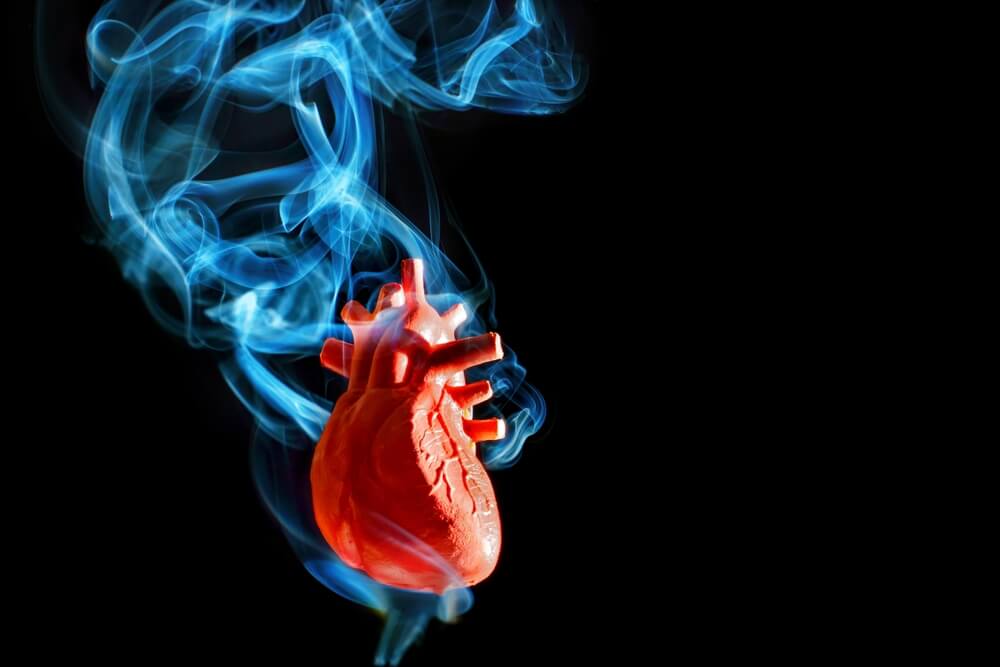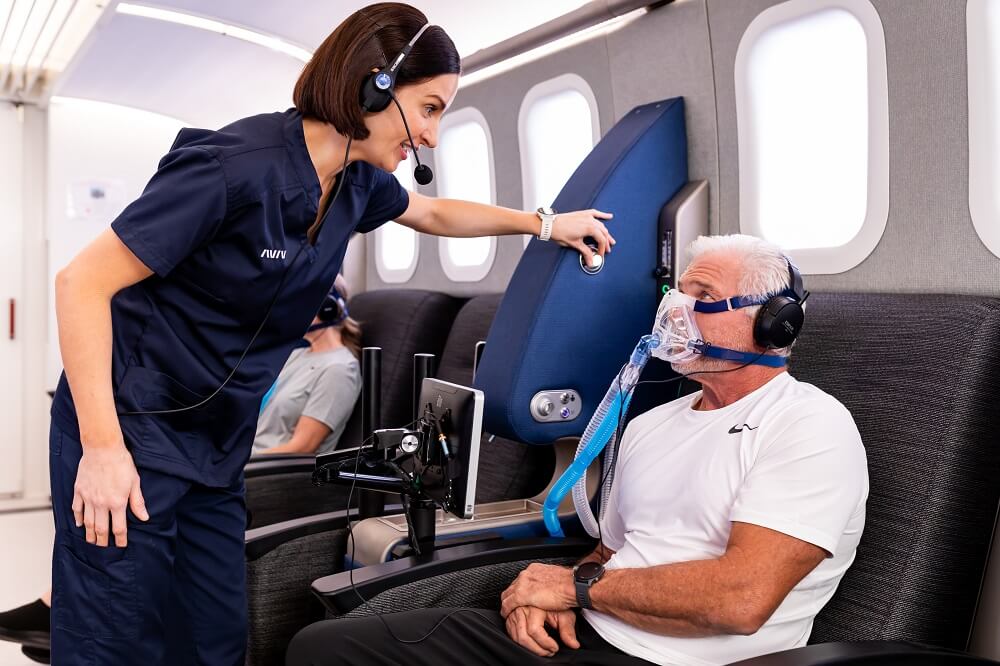
Surviving Carbon Monoxide Poisoning: Long-Term Damage Explained


The silent aftermath of carbon monoxide (CO) exposure can catch survivors off guard. While acute CO poisoning is often recognized and treated immediately, exposure to CO over an extended period or substantial exposure can create chronic cases, which present different challenges. Many survivors feel disoriented, struggle with simple tasks, and experience fatigue that never seems to lift. This is the reality of carbon monoxide poisoning’s long-term damage.
Exposure to this colorless, odorless gas carries the potential for long-term health complications. When inhaled, carbon monoxide readily binds to the hemoglobin in red blood cells, blocking oxygen from reaching vital organs, especially the brain. Oxygen deprivation can lead to health issues that persist for months or even years.
Whether you’re a survivor or a loved one, know there is hope on the horizon. Understanding chronic carbon monoxide poisoning and its treatment options is the first step on the path toward healing.
Long-Term Effects on the Brain
The brain is a powerful yet highly sensitive organ, particularly vulnerable to oxygen deprivation. When carbon monoxide robs the brain of oxygen, it can lead to hypoxic or anoxic brain damage, which can occur “whenever oxygen delivery to the brain is compromised.” The resulting damage to brain tissue can resemble that seen in the brain scans of traumatic brain injuries and can have both immediate and long-lasting effects.
In the acute stage of CO poisoning, the brain experiences immediate distress, with symptoms such as:
- Confusion
- Dizziness
- Headaches
- Brain fog
- Loss of consciousness
Quick intervention can help mitigate these initial symptoms, but even after treatment, many patients see long-term carbon monoxide poisoning effects on the brain, some of which appear well after initial exposure. Delayed neuropsychiatric syndrome (DNS) ”develops in up to 50% of adult survivors.”
The damage to the brain can manifest in many different ways, affecting cognitive ability and neurological functioning.

Cognitive Impairments
One of the first signs of acute CO poisoning is brain fog. For chronic carbon monoxide poisoning survivors, this fog never completely goes away.
Survivors may also experience:
- Memory loss
- Difficulty concentrating
- Problems with executive function
These symptoms may become constant, frustrating companions. It can be challenging for some to remember recent events or even access long-term memories.
Simple tasks that once came naturally may require intense concentration to complete. It’s as if the brain’s filing system becomes jumbled, making information retrieval a frustrating and often fruitless experience.
Mood and Behavioral Changes
Studies show it’s not uncommon for patients to experience personality changes as well as “prominent depression, anxiety, and irritability several years after accidental CO poisoning.”
In some cases, the symptoms of resulting mood disorders can mimic the symptoms of cognitive decline, including trouble with memory, attention, and concentration. Patients may also become socially detached or demonstrate emotional instability in the wake of CO poisoning.
Neurological Disorders
One major reason CO poisoning is so concerning is that the “chronic stage includes progressive neurological decline,” especially if left untreated.
As a result of a disruption in the brain’s delicate balance, some CO poisoning survivors develop Parkinsonism, or a set of neurological issues reminiscent of Parkinson’s disease. Symptoms like tremors, rigidity, and movement difficulties can make even holding a morning cup of coffee a significant challenge.
Long-Term Effects on the Heart and Other Organs
The brain may bear the brunt of carbon monoxide poisoning’s long-term damage, but other vital organs don’t always escape unscathed. The pervasive nature of carbon monoxide poisoning’s chronic impact on the body means multiple organ systems can experience a complex array of health outcomes.

Cardiovascular Damage
The heart depends on a steady supply of oxygen to function optimally. When this supply is disrupted by CO exposure, survivors may find themselves at an increased risk of heart conditions, as “myocardial tissue is highly sensitive to oxygen deprivation.”
CO poisoning can accelerate the formation of plaque, disrupt the heart’s electrical system, and damage muscle cells. Resulting heart conditions can include:
- Arrhythmias
- Pulmonary edema
- Heart attack
- Heart failure
Research suggests that chronic CO exposure may increase oxidative stress and affect the heart’s structure and function, which could increase the risk of cardiac events in the future.
Impact on Other Organs
Beyond the heart, other organs and bodily systems can face challenges after CO poisoning:
- The kidneys, tasked with filtering blood, can struggle to function, which may lead to renal damage. After CO poisoning, patients experience a “6.15-fold increase in the risk of developing” chronic kidney disease.
- The liver, the body’s chemical processing plant, can experience dysfunction, which may further compromise overall health. Dysfunction following CO poisoning is mainly “caused by insufficient oxygen uptake” by cells in the liver.
- The endocrine system regulates hormones and the body’s stress response. Some patients with CO poisoning face a significant “risk for adrenal insufficiency,” affecting stress management, blood pressure, and energy levels.
The interconnected nature of the body’s systems means that damage to one organ can have wider effects. This underscores the importance of a holistic approach to chronic carbon monoxide poisoning treatment.
Long-Term Effects on Overall Health
The ripple effects of CO poisoning extend beyond specific organs, impacting overall health and functionality in profound ways. It’s common for survivors to find themselves facing a complicated web of symptoms that affect every aspect of their day-to-day life.
The cumulative impact of chronic carbon monoxide poisoning can cause a dramatic shift in quality of life. These effects include:
- Persistent Fatigue and Weakness: This fatigue is described as more than just tiredness; it’s a bone-deep exhaustion that drains energy and vitality. Some survivors even develop the symptoms of chronic fatigue syndrome (CFS).
- Physical Limitations: Many people find themselves facing varying degrees of physical disability and having a hard time performing actions that once came easily.
- Dependence on Others: Some may become reliant on loved ones or caregivers for tasks they previously managed independently, which can affect their self-esteem and sense of autonomy.
- Psychological Toll: The struggle with chronic symptoms can lead to grief over the loss of abilities and feelings of depression and isolation..
- Identity Reevaluation: Living with these symptoms may cause a person to reevaluate their identity and place in the world or redefine what success looks like on a daily basis.
Despite these challenges, it’s vital to note that, with the right treatment approach, survivors of carbon monoxide poisoning’s long-term damage can adapt and thrive. Comprehensive, extended care that addresses not just the symptoms but also the root causes can offer a greatly improved quality of life.
Chronic Carbon Monoxide Poisoning Treatment: Offering Much-Needed Hope
If your outlook appears bleak, know that hope is not lost. Innovative chronic carbon monoxide poisoning treatment offers a lifeline for those grappling with the long-term impact of CO exposure.
While acute treatment focuses on immediate stabilization, treatment for chronic carbon monoxide poisoning seeks to address damaged tissues and promote healing for lingering effects:
Acute CO poisoning treatment:
- Focus: Immediate intervention
- Timeframe: Within hours or days of exposure
- Primary Goal: Rapidly remove CO from the bloodstream
- Method: High-flow oxygen therapy, supportive care (IV fluids, monitoring)
Chronic CO poisoning treatment:
- Focus: Addressing long-term effects and promoting healing of damaged tissues
- Timeframe: Within weeks, months, or even years after exposure
- Primary Goals: Improve cognitive function, reduce neurological symptoms, enhance quality of life, and address secondary health issues
- Method: Advanced hyperbaric oxygen therapy, comprehensive neurological and cognitive assessments, personalized nutrition coaching, and cognitive and physical training programs

Hyperbaric oxygen therapy (HBOT) has long been recognized as an effective treatment for acute CO poisoning because it floods the body with the vital oxygen it needs to stabilize. However, advanced HBOT can also address the complex needs of chronic CO poisoning patients.
In the chronic phase, peer-reviewed, published research shows that a specific, unique HBOT protocol offers immense promise in helping the brain and body recover from CO poisoning:
- In patients with anoxic brain injury, as often seen in chronic CO poisoning cases, studies show this specific HBOT protocol offers an “improved ability to perform the activities of daily living and quality of life.”
- Research indicates HBOT “decreases the severity of impairment” in patients with symptoms of delayed neuropsychiatric syndrome (DNS) after CO poisoning.
HBOT floods the body’s tissues with oxygen, which helps restore the oxygen balance in the blood, promotes healing, and reduces the risk of long-term damage from carbon monoxide exposure. Yet, not all HBOT protocols support recovery in the same way.
In this advanced HBOT protocol, available through the Aviv Medical Program, high concentrations of pure oxygen are delivered with fluctuating pressure levels. In published, peer-reviewed clinical trials, this protocol has been shown to:
- Stimulate the growth of new blood vessels
- Encourage neurogenesis (the growth of new brain cells)
- Reduce inflammation
- Support the regeneration of damaged tissues
This approach not only addresses brain health but also supports recovery in other affected body systems, including the heart and other organs.
The Aviv Medical Program
The Aviv Medical Program offers a path forward for those who may have lost hope after initial treatments failed to provide relief.

Because chronic carbon monoxide poisoning affects multiple body systems in different ways, the Aviv Medical Program takes a personalized approach tailored to each patient and can incorporate:
- Neurological assessments
- Personalized nutritional guidance
- Cognitive training
- Physical therapy and training
- Advanced HBOT sessions
The Aviv Medical Program can address multiple challenges faced by chronic CO poisoning patients, including:
- Tailored nutrition, training, and HBOT to support energy levels
- Therapies to enhance daily living skills
- Cognitive training to improve mental capabilities
- Coaching and support that considers the patient’s individual goals
Developed over a decade by a team of medical experts, this multifaceted, personalized approach ensures the secondary impacts of chronic carbon monoxide poisoning receive appropriate care.
Find Treatment for Long-Term Carbon Monoxide Poisoning Effects
If you’re struggling with the long-term effects of carbon monoxide poisoning, know that Aviv understands the unique chronic challenges faced by carbon monoxide poisoning survivors. Through the Aviv Medical Program, it’s possible to unlock your body’s natural healing potential and take back the life you deserve.
If you’re affected by long-term symptoms of carbon monoxide poisoning, we encourage you to contact Aviv Clinics. Together, we can talk about treatment options and map a course toward a healthier future.
Aviv Medical Program provides you with a unique opportunity to invest in your health while you age




